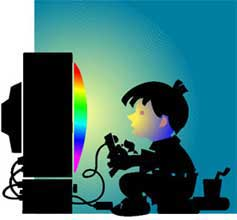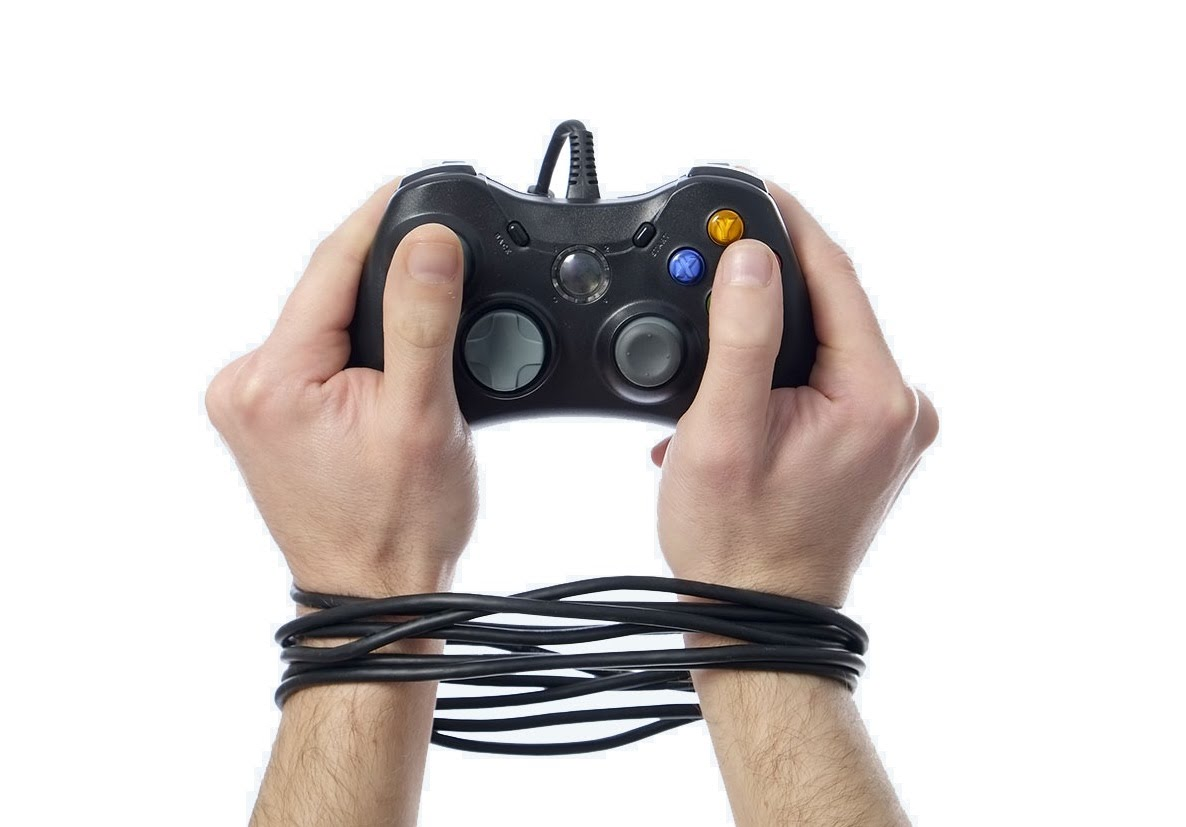The internet is now an important part of many people’s daily lives, particularly the young generation. Teenagers particularly use it to get information, to communicate and also to entertain themselves.
However recent studies showed that people can get too preoccupied with particularly online games. These “gamers” play compulsively and persistently and this can cause significant impairment in their functioning. They also can experience symptoms of withdrawal when not playing games. When they are engrossed in internet games, certain pathways in their brains are triggered in the similar way that a drug addict’s brain is affected by a particular substance. The gaming prompts a neurological response that gives feelings of pleasure and reward, and it can manifested as an addictive behavior.
Thus, Internet Gaming Disorders is a new problem included as a proposed psychiatric disorder under Section III in the Diagnostic and Statistical Manual of Mental Disorders (DSM-5) as a condition on which future research is encouraged. It means that internet gaming problem is serious enough to be considered as a psychiatric disorder, though more researches are needed.
Proposed Criteria of Internet Gaming Disorder
- Persistent and recurrent use of the internet to engage in games, often with other players, leading to significant impairment at least for 12 months duration.
- Preoccupation with Internet games.
- Withdrawal symptoms when internet gaming is taken away. Examples of withdrawal symptoms are irritability, anxiety, or sadness.
- Tolerance i.e the need to spend increasing amount of time engaging in internet games.
- Unsuccessful attempts to control the participation in internet games.
- Loss of interests in previous hobbies and entertainment as a result of playing Internet games.
- Continued excessive use of internet games despite knowing psychosocial problems.
- Deceive family members, therapists, or others regarding the amount of time spend on internet gaming.
- Use of internet games to escape or relieve a negative mood (e.g., feelings of helpless ?ness, guilt, anxiety).
- Has jeopardized or lost a significant relationship, job, or educational or career opportunity because of participation in internet games.
How common is it?
It is estimated to be higher in Asian countries and in male teenagers between the ages of 12 to 20 years of age. One study reported the prevalence was 8.4% for males and 4.5% for females.
What are the risk factors to have this problem?
- Availability of computers with internet connection allowing access to games that can cause Internet Gaming Disorder.
- Males teenagers are also at risk of developing Internet Gaming Disorder.
What are the consequences of Internet Gaming Disorder?
Internet Gaming Disorder may lead to school failure, job loss, or relationship failure. The compulsive gaming behavior tends to cause the gamer to ignore normal social, scholastic and family activities. Students may show declining grades and eventually fail in school. Family responsibilities may be neglected.
Tips for parents in managing internet gaming addiction
- At this stage, Internet Gaming Disorder is not an official psychological disorder and is not a recognized addiction.
- The more a teen plays computer games, the more likely his or her play has crossed over into the “unhealthy levels of play” category. Parents should monitor the average hours a teen plays per day.
- Monitor whether the gaming is interfering with a teen’s social relationships, school performance, mood, and development of interpersonal skills.
- Do not assume that the teen will eventually get bored of video games and that gaming is simply a phase. Do not depend on the problem taking care of itself. Computer game addiction needs to be attended to as soon as parents recognize that it is causing significant impairment in other important areas of the teen’s life.
- Take notice when the computer use becoming unhealthy and excessive. For these teens, computer games take priority over all other activities, and development in other areas (for example, school, relationships, clubs, sports) is sacrificed so that more time can be spent in front of the computer screen.
- If the teen continues to play despite experiencing significant negative consequences in other areas of his life (e.g., ignoring school or friends) his computer gaming is a problem and it needs attention.
- Parents should establish very clear rules around gaming. It is important that any rules around gaming are consistently enforced. Set limits on playing computer games
- Place computers or game consoles in public areas at home. Do not allow it to be placed in private areas where it can’t be supervised e.g. in bedroom.
- Sometimes, internet gaming addiction is a symptom of another psychological, emotional, or interpersonal problem such as depression, anxiety, and poor social skills.
Reference:
- American Psychiatric Association: Diagnostic and Statistical Manual of Mental Disorders, Fifth Edition. Arlington, VA, American Psychiatric Association, 2013
- Griffiths, M.D. (1999). Internet addiction: Fact or fiction? The Psychologist: Bulletin of the British Psychological Society, 12, 246-250.
- http://www.dsm5.org/Documents/Internet%20Gaming%20Disorder%20Fact%20Sheet.pdf
- http://www.techaddiction.ca/teenagers-addicted-to-computer-games.html









